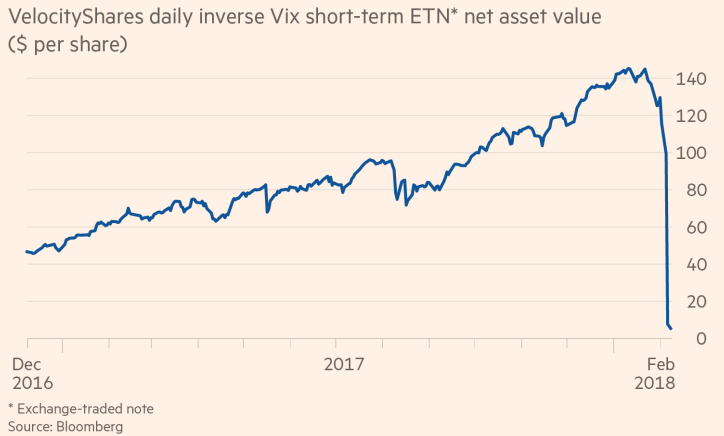By now, we all pretty much know that the recent upsurge in the VIX Index caused the spectacular failure of some Exchange-Traded Products (ETPs) or Exchange-Traded Notes (ETNs) written on it. An example from The Financial Times, where you can see the short index collapsed to $0$:
On the other hand, looking at the VIX evolution over the last year, we barely observe any significant price movement that might explain the exceptional performance of these products. From the CBOE webpage:
From what I have read, I have the impression these short VIX strategies are basically leveraged short positions of forwards/futures on the VIX Index, thus they are carry-positive strategies: all things remaining equal from strategy inception to strategy maturity, the holder of a short position in the strategy will be cashing-in the "convenience yield" $-$ whatever the convenience yield corresponds to in the context of the VIX, which is a non-traded asset.
In the light of the charts above, I ask myself the following question: is there anything else to these short VIX strategies other than convenience yield capture based on the hope that the index will remained subdued? Has anybody an understanding/experience with these products?


